HIS NO SAVED YOU, YOUR FAMILY AND FRIENDS
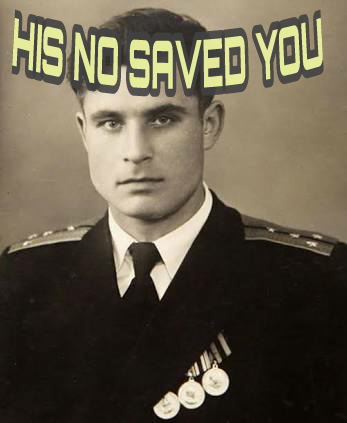
He's the reason why you, I or anyone on this planet perhaps, is alive:(Vasili Alexandrovich Arkhipov)
The world owes an enormous debt to a quiet, steady Russian naval officer (Vasili Alexandrovich Arkhipov) who probably saved my life, yours and everyone you know, even those of you who weren’t yet born. The incident in question took place on Oct. 27. It was the most dangerous day in history.
In the fall of 1962, the United States sent a US U-2 aircraft to fly over Cuba to attempt to confirm the rumors that they had heard about the Soviet missile sites in Cuba. On October 14th, 1962, the U-2 arrived back with pictures of these missiles sites. A day later, the pictures were presented to President Kennedy. Tensions rose and alarms were sounded. And, thus, on October 15th, 1962 the 13-day ordeal that became known as the Cuban Missile Crisis began.
An American spy plane had been shot down over Cuba while another U2 had got lost and strayed into Soviet airspace. The U.S. Navy carrier Randall and more than 10 escort destroyers were tracking a formation of four Russian subs in international waters that were making for the exclusion zone President Kennedy had imposed on Cuba (blockaded). No sea traffic was permitted through. As these dramas ratcheted tensions beyond breaking point, an American destroyer, the USS Beale, began to drop small grenade-sized practice depth charges in an attempt to force their quarry it to the surface. Three of the Soviet subs capitulated (B-36, B-4 and B-130), but one sub known as the B-59, a Soviet submarine armed with a nuclear weapon, remained beneath the waves.LINK
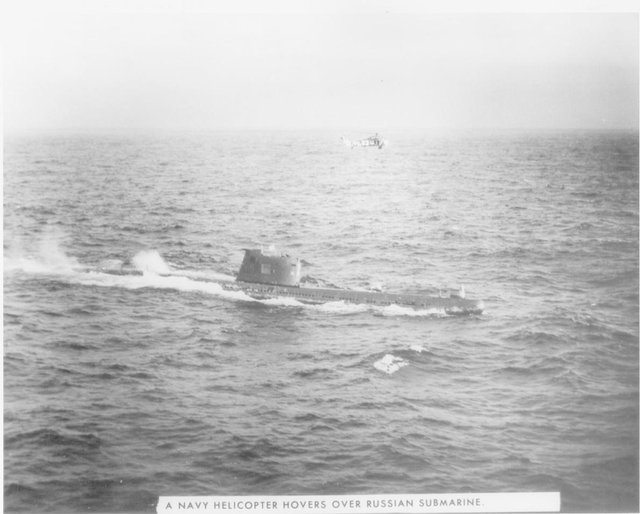
The captain of the B-59, Valentin Savitsky, had no way of knowing that the depth charges were non-lethal "practice" rounds intended as warning shots to force the B-59 to surface having been out of radio contact with the Soviet Union for several days. The Beale was joined by other US destroyers who piled in to pummel the submerged B-59 with more explosives.
The Russian command, for its part, had no idea how tough it was inside that subs. Anatoly Andreev, a crew member on a different, nearby sub, kept a journal, a continuing letter to his wife, which described what it was like:
For the last four days, they didn’t even let us come up to the periscope depth… My head is bursting from the stuffy air… Today three sailors fainted from overheating again… The regeneration of air works poorly, the carbon dioxide content [is] rising, and the electric power reserves are dropping. Those who are free from their shifts are sitting immobile, staring at one spot… Temperature in the sections is above 50 [122ºF].
The captain felt doomed. Vadim Orlov, an intelligence officer who was there, remembers a particularly loud blast:
“The Americans hit us with something stronger than the grenades—apparently with a practice depth bomb,” he wrote later.
The exhausted Savitsky assumed that his submarine was doomed and that world war three had broken out. He ordered the B-59's ten kiloton nuclear torpedo to be prepared for firing. Its target was the USS Randolf, the giant aircraft carrier leading the US task force. In keeping with Soviet launch protocols, Savitsky required the authorization of the two other ranking officers aboard to fire the salvo. One of the men confirmed the launch order, but Arkhipov, the B-59’s 36-year-old first officer refused. If Savitsky had launched his torpedo, had he vaporized a U.S. destroyer or aircraft carrier, the U.S. would probably have responded with nuclear-depth charges which would have led to catastrophic consequences.LINK
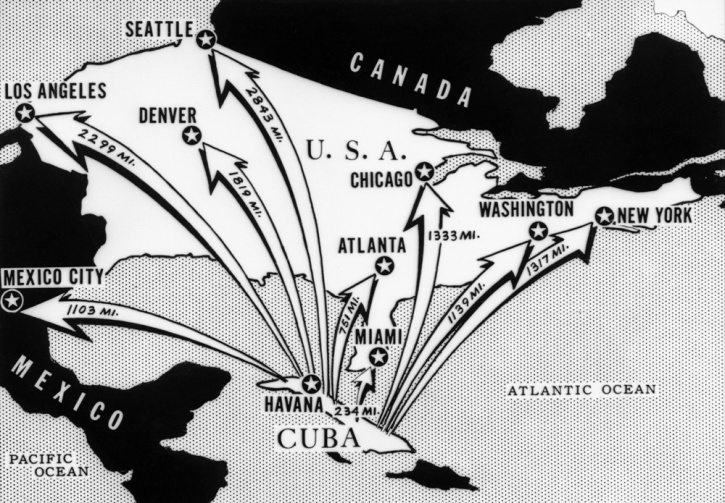
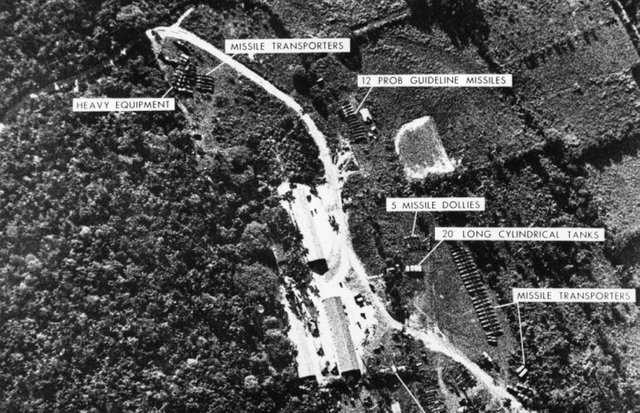
But it didn’t happen, because that’s when Vasili Alexandrovich Arkhipov steps into the story.
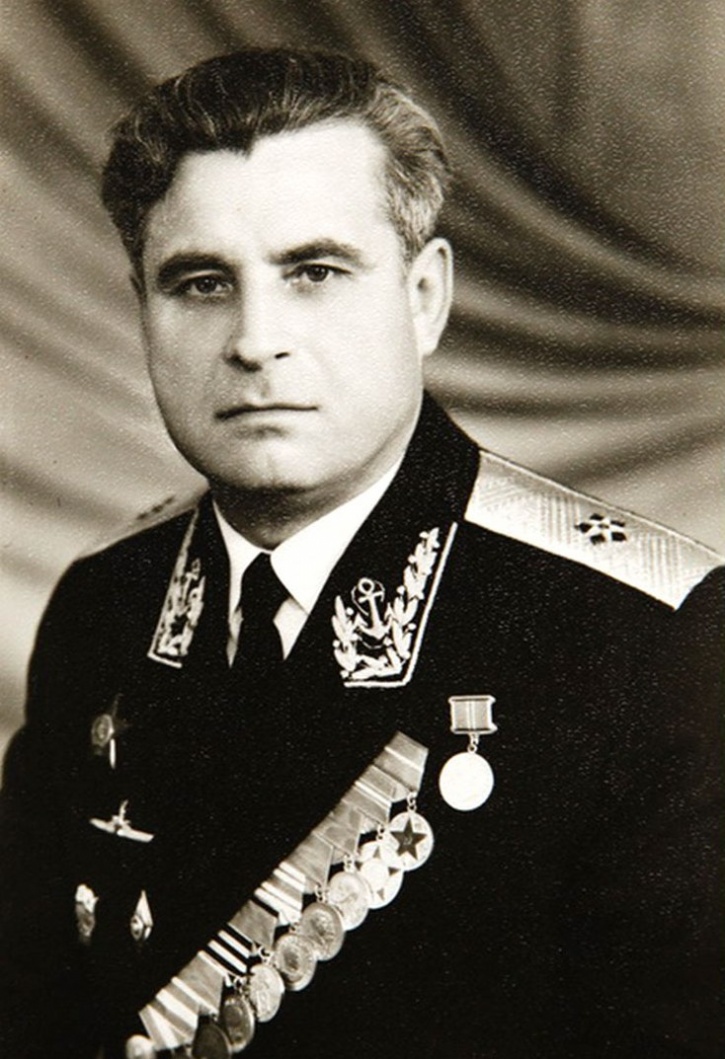
The Decision that Saved Humanity
Author Edward Wilson has written:
The decision not to start world war three was not taken in the Kremlin or the White House, but in the sweltering control room of a submarine.
Arkhipov had already been involved in a nuclear incident:
Only a year ago, in July, he was serving as a deputy commander of a K-19 nuclear submarine whose coolant – as well as radio communication – system suffered a serious malfunction. Having no backup systems, Arkhipov ordered his men to come up with a solution; else the nuclear meltdown was inevitable.The entire crew, including Arkhipov, was irradiated and all members of the engineering crew died within a month of finding a solution to the imminent disaster.
So, Vasili Arkhipov was kind of an experienced actor in this field.
A heated dispute broke out between the Russian captain and his second-in-command. Arkhipov argued against the launch pointing out that they should first confirm that a state of war actually existed before releasing nuclear weapons. Some people believed that Arkhipov reputation might have helped him convince other commanders to step away from the red button. After all, he didn’t prevent a nuclear disaster just so he could start one of his own.
If the B-59's torpedo had vaporized the Randolf, the nuclear clouds would quickly have spread from sea to land. The first targets would have been Moscow, London, the airbases of East Anglia and troop concentrations in Germany. The next wave of bombs would have wiped out "economic targets", a euphemism for civilian populations – more than half the UK population would have died. Some people believed that His reputation might have helped him convince other commanders to step away from the red button.
The B-39 emerged from the waves amid its pursuers. After resuming communications with the Soviet Union, the sub’s skipper put about and steamed for home.LINK
He was not punished by the Soviets and later promoted. Despite receiving what the Daily Telegraph described as a “hero’s welcome”, Arkhipov was soon forgotten. He retired from the Soviet navy as a vice admiral in the 1980s and died in relative obscurity in 1998.
October 27 should be Arkhipov Day.
LESSONS:
Temperament matters. If not careful anger can cloud your judgment and decisions. Don't rush into decision making. It pays not to despairs as it may be the saving cost for someone or something. Make impact.

ALL PICTURES GOTTEN FROM SOURCE
Hermano gracias por esta información, busque más sobre el tema , muy bueno tu articulo.
Gracias
Wow I remember this story, but I did not know who was responsible for stopping it by name. We should all be thankful for this guy. His reasoning overcame as the voice of reason. He saved us all really. I mean if a nuclear bomb drops anywhere in Europe countries would have immediate or over time lasting effect. Let's hope none of this happens to us in the future. Hopefully, there will more voices of reasons such as Arkhipov. :)
Thank you for sharing this amazing story with us. Have a great day. :)
Yes.
People who will analye the effect of there decisions before carrying them out
Congratulations @tormiwah! You have completed some achievement on Steemit and have been rewarded with new badge(s) :
Click on any badge to view your own Board of Honor on SteemitBoard.
For more information about SteemitBoard, click here
If you no longer want to receive notifications, reply to this comment with the word
STOPYou're a wise man with wise stories. I'm inspired!
Thanks bro